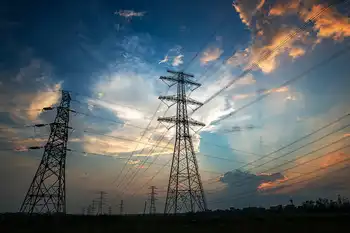Tests Said to Tie Deal on Uranium to North Korea
WASHINGTON, D.C. - Scientific tests have led American intelligence agencies and government scientists to conclude with near certainty that North Korea sold processed uranium to Libya, bolstering earlier indications that the reclusive state exported sensitive fuel for atomic weapons, according to officials with access to the intelligence.
The determination, which has circulated among senior government officials in recent weeks, has touched off a hunt to determine if North Korea has also sold uranium to other countries, including Iran and Syria. So far, there is no evidence that such additional transactions took place.
Nonetheless, the conclusion about Libya, which is contained in a classified briefing that has been described to The New York Times, could alter Washington's debate about the assessment of the North Korean nuclear threat. In the past, some administration officials have argued that there is time to find a diplomatic solution because there was no evidence that the government of Kim Jung Il was spreading its atomic technology abroad.
Nine months ago, international inspectors came up with the first evidence that the North may have provided Libya with nearly two tons of uranium hexaflouride, the material that can be fed into nuclear centrifuges and enriched into bomb fuel. Libya surrendered its huge cask of the highly toxic material to the United States when it dismantled its nuclear program last year.
Now, intelligence officials say, extensive testing conducted at the Oak Ridge National Laboratory in Tennessee over the last several months has concluded that the material did not originate in Pakistan or other suspect countries, and one official said that "with a certainty of 90 percent or better, this stuff's from North Korea."
It is unclear if there are any dissenting views in the government, though some outside experts have accused the administration of overstating intelligence on North Korea. Officials cautioned that the analysis of the uranium had been hampered by the fact that the United States has no sample of known North Korean uranium for comparison with the Libya material. The study was done by eliminating other possible sources of uranium, a result that is less certain than the nuclear equivalent of matching DNA samples.
One recently retired Pentagon official who has long experience dealing with North Korea said the new finding was "huge, because it changes the whole equation with the North."
"It suggests we don't have time to sit around and wait for the outcome of negotiations," he said. "It's a scary conclusion because you don't know who else they may have sold to."
President Bush is expected to mention North Korea in his State of the Union address on Wednesday night. In that speech three years ago, he identified the country as part of an "Axis of Evil," along with Iran and Iraq. Two weeks ago Condoleezza Rice, in her confirmation hearings for secretary of state, included North Korea in a list of six "outposts of tyranny," but a senior administration official said Mr. Bush was not planning to use that phrase in his speech.
On Tuesday, in an interview with Reuters and Agence France-Presse, Ms. Rice said of North Korea, "We made a very good proposal at the last round of six-party talks and it's on the table for the taking."
"The idea that somehow the United States is hostilely going to attack North Korea couldn't be more far fetched," she said. A spokesman for the National Security Council, Frederick Jones, declined to comment on the report of the new North Korea findings, citing "intelligence concerns."
Questions of how to deal with North Korea - through engagement and dialogue or through sanctions and pressure to crack its government - have divided the Bush administration since its first days. Vice President Dick Cheney has led the hawkish faction, declaring that "time is not on our side." While some of the officials interviewed about the most recent North Korean evidence have been involved in that policy debate, others have not been, and have either examined the scientific evidence or received intelligence briefings about its conclusions.
Related News

Quebec authorizes nearly 1,000 megawatts of electricity for 11 industrial projects
MONTREAL - The Quebec government has unveiled the list of 11 companies whose projects were given the go-ahead for large-scale power connections of 5 megawatts or more, for a total of 956 MW.
Five of the selected projects relate to the battery sector, and two to the bioenergy sector.
TES Canada's plan to build a green hydrogen production plant in Shawinigan, announced on Friday, is on the list.
Hydro-Québec will also supply 5 MW or more to the future Northvolt plant at its facilities in Saint-Basile-le-Grand and McMasterville.
Other industrial projects selected are those of Air Liquide Canada, Ford-Ecopro CAM Canada S.E.C, Nouveau monde…




